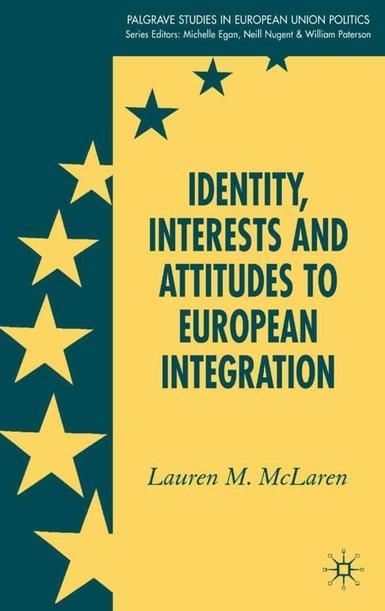Identity, Interests and Attitudes to European Integration
Lauren McLAREN
Disponibilité: En rupture de stock - disponible sous 10 jours
- Catégories: European Integration, Identités européennes
- Editeur: PALGRAVE-MACMILLAN
- Collection: Palgrave Studies in European Union Politics
- ISBN: 9781403992819
- Date de publication: 16/12/2005
- Reliure: Hardback
- Nombre de pages: 232
Résumé
To what degree do citizens of EU member states support its institutions, and how much do perceptions of those institutions depend upon fundamental feelings of identity? In Identity, Interests and Attitudes to European Integration, Lauren M. McLaren outlines explanations of varying feelings towards the European Union and the integration project, focusing on egoistic self-interest and the perceived threat to one's group. The book introduces new evidence that questions the degree to which Europeans think about the EU in utilitarian terms and contemplates the other lenses through which ordinary citizens might view the EU, particularly those that identify and reject it. Ultimately, the book contends that feelings about the EU may be related more to general xenophobia and out-group rejection than to cost/benefit calculations about whether the EU satisfies one's self-interest.
Table des matières
List of Tables
List of Figures
List of Acronyms
Introduction
Opposition to European Integration: The Data Conceptualisation and Measurement
Rational Explanations of Support for European Integration Egocentric Utilitarianism
Group Conflict Theory and European Integration
Symbolic Politics and European Integration: The Role of National Symbols and Identity
Pre-Cursors to Group Conflict and Symbolic Threat: Rationality?
Attitudes to Policymaking in the EU
New Member States, Utilitarianism, Perceived Threat, and Opposition to European Integration
Conclusion
Notes
References
Index
